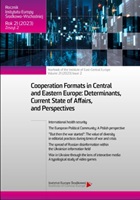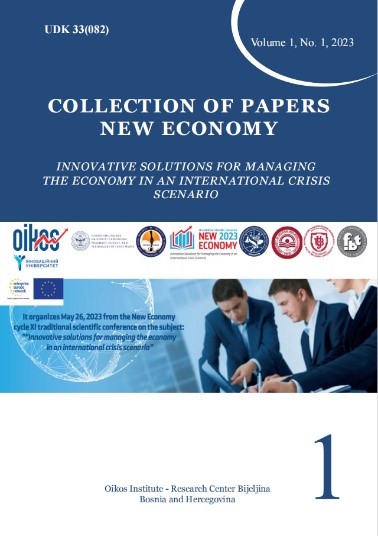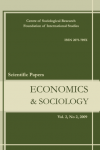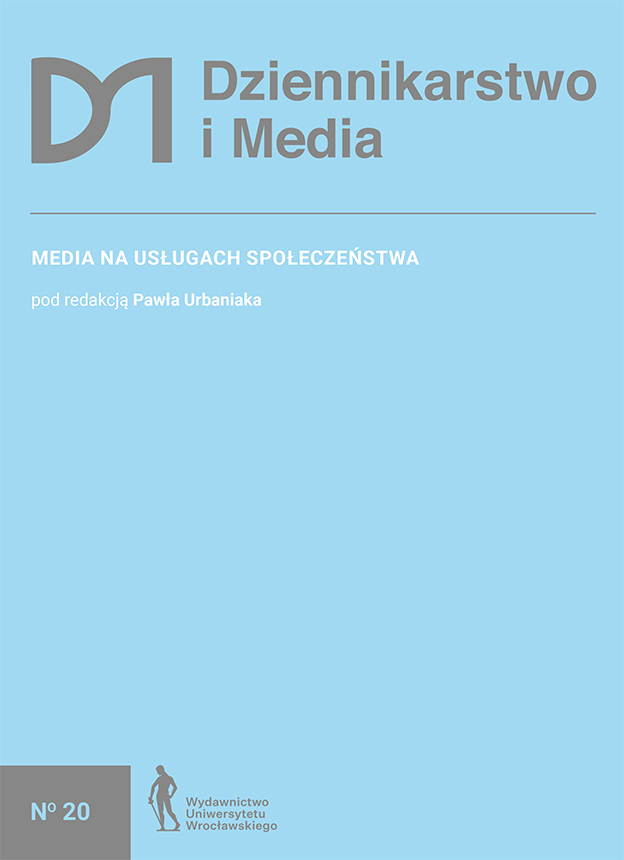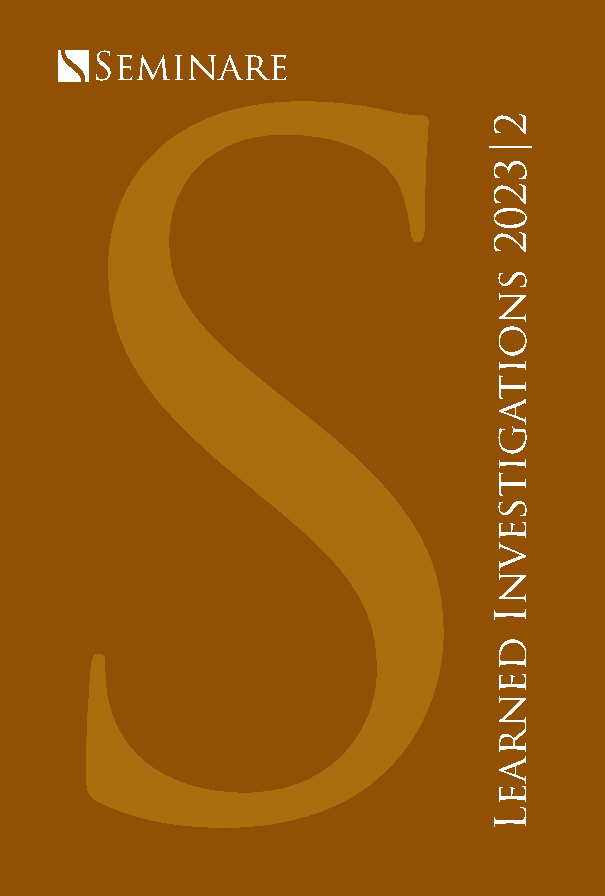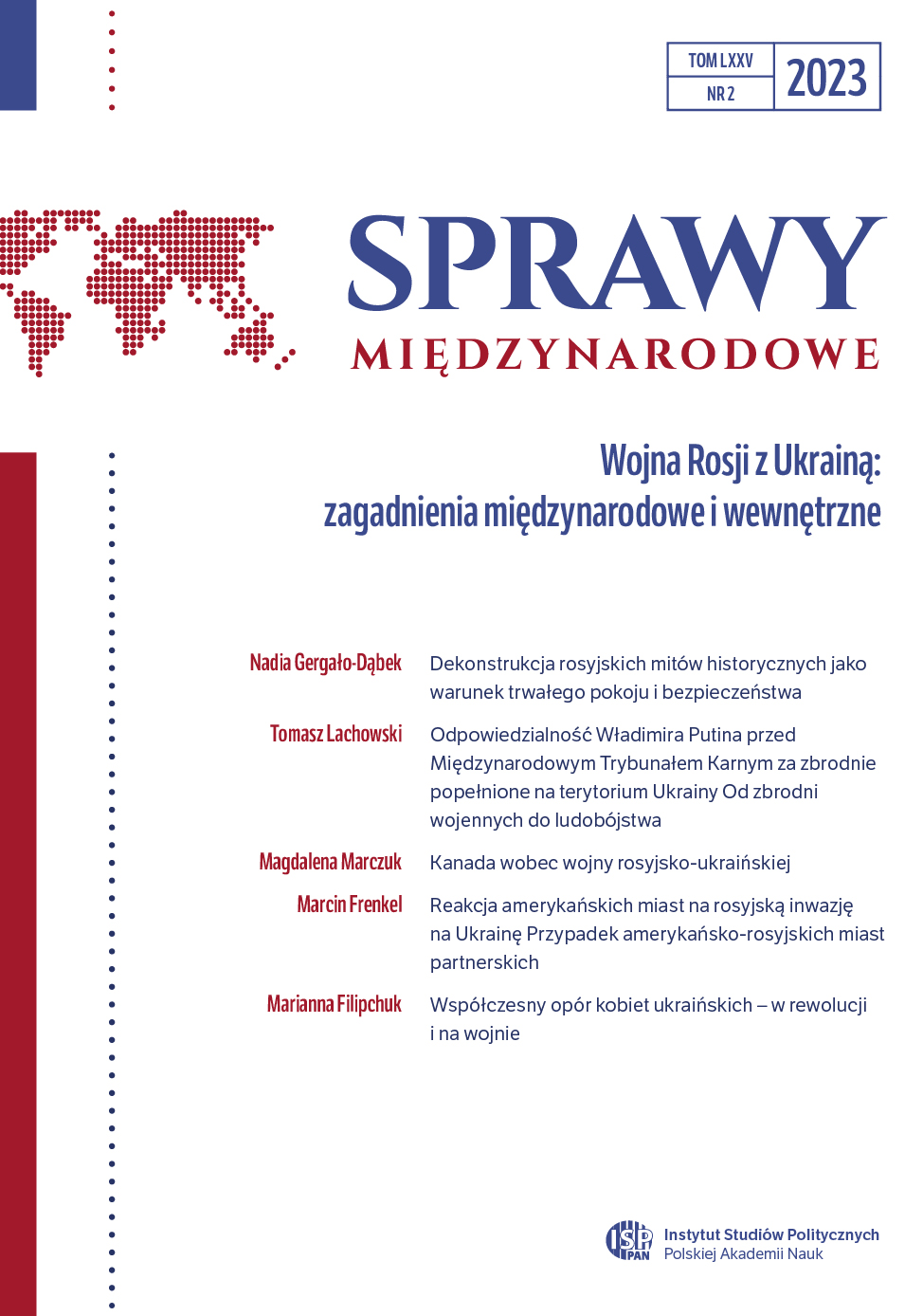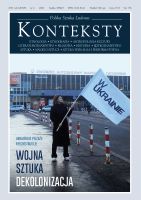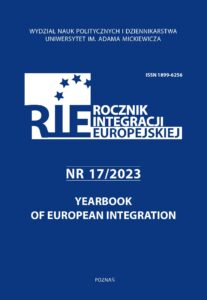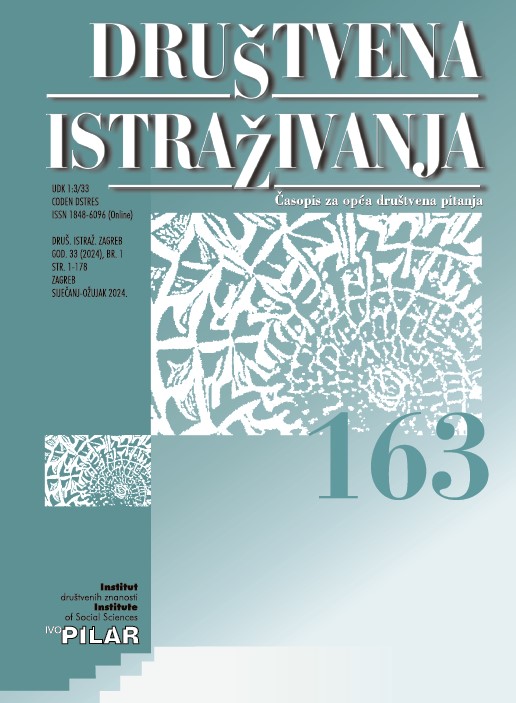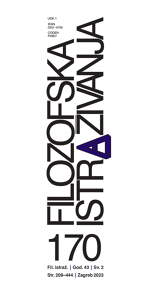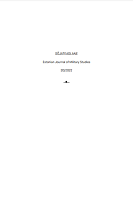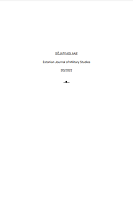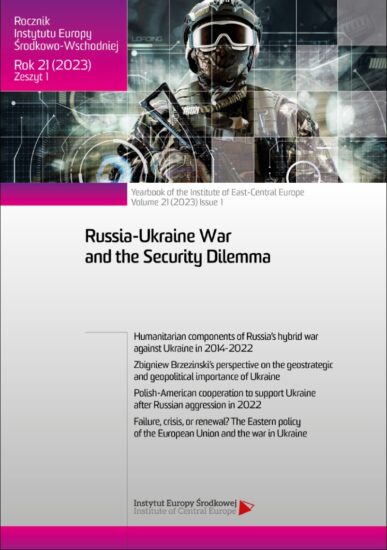
Humanitarian components of Russia’s hybrid war against Ukraine from 2014-2022
The article provides a comprehensive analysis of the humanitarian components of the latest Russian-Ukrainian war, which is qualified by its authors as a hybrid war. In principle, it is about the ideological basis, historical and religious mythology, and the information support of Russia’s revanchist policy in Ukraine, which the current Russian regime uses in its armed aggression against Ukraine. The authors convincingly and argumentatively prove that non-military instruments in Russia’s war against Ukraine are subordinated to a single goal – the restoration of the Russian empire and its international political influence. In order to achieve this goal, the Putin regime uses all the means available to it, including the spread of pseudo-historical myths and fakes that justify the expansionist policy of the Kremlin in Ukraine and in the countries of the post-Soviet space. Using a widely sourced base, the authors of the article refute the most common Russian pseudo-historical narratives.
More...
